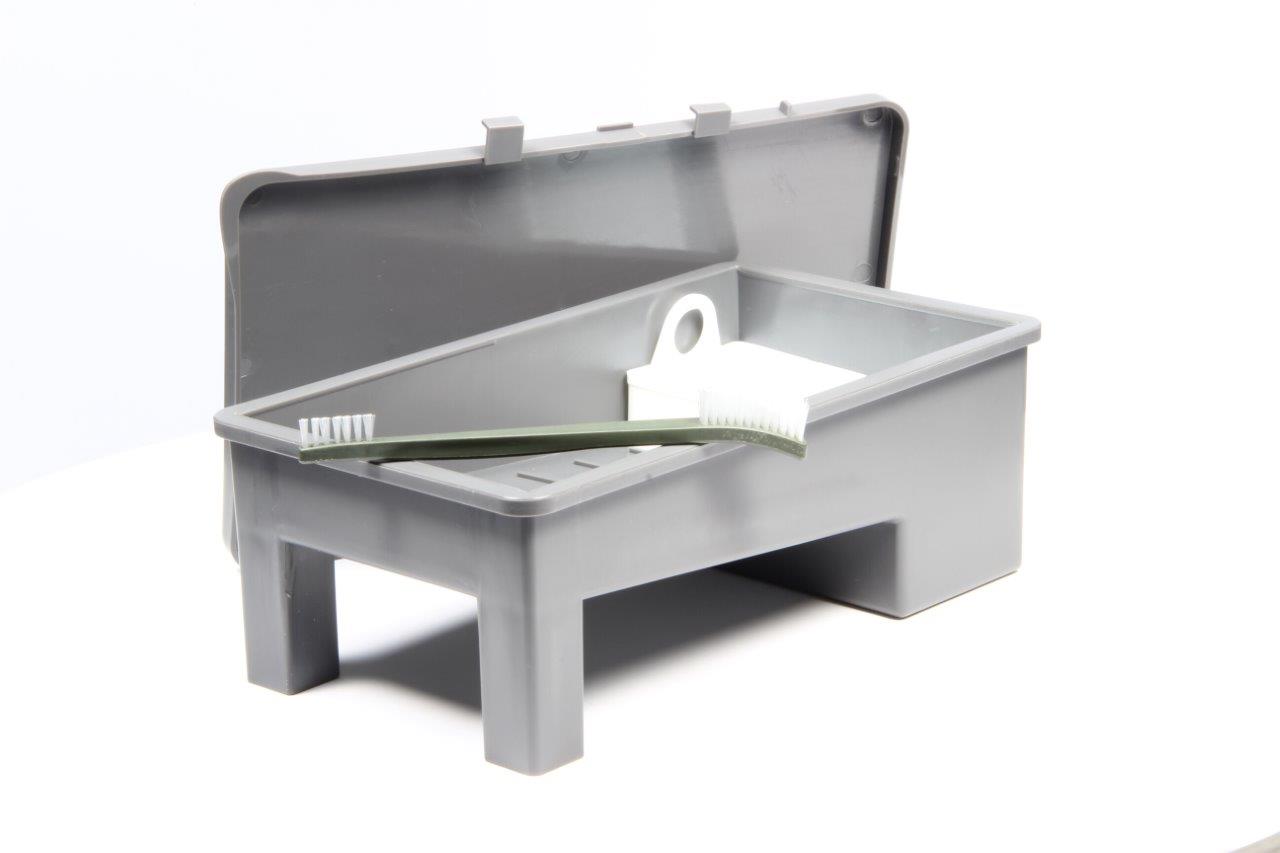Can I Clean a Gun Too Much?
Can I Clean a Gun Too Much?
The big question is how often should I clean my gun. Is it possible to over clean it? And after I clean it how do I properly lubricate it, should I use oil or grease? The first gun I’m going to look at as a Glock 19. This particular gun is new right out of the box and. After working with a little bit. I noticed that it had a really bad trigger pull. So I’m going to take it out to the range to fire it enough to get it to break in. I’m going to do a cleaning on it and then when we get back from the range, we’ll clean it again.
I took this gun to the range. And I put just under one hundred rounds through it first, about 50 rounds of Speer 150 grain and then after that Winchester NATO spec 9mm, which pretty much is a plus P round. This Glock runs real dirty probably messes up the timing in that the cartridge is extracted slightly before all the powder has been burned and we end up with a bunch of powder residue and unburned powder getting 100% into the action and trigger group. What this means is this baby needs to be cleaned immediately after coming off the range.
Okay. First step in cleaning obviously is to make sure the gun is unloaded. To do that drop the magazine out of it, work the action, and make a visual and digital inspection to make sure that the chamber and the barrel are free of ammunition or any obstructions. The barrel of this particular Glock looks really dirty with less than 100 rounds and there’s a lot of carbonization that has built up in just under the 100 rounds that we fired at the shooting range. All you need to do is look down the barrel and look into the trigger group and in the action and you’ll see just how incredibly dirty this gun is. Needless to say this type of crud accumulation will result in reliability and feed issues which would be problematic if you’re ever in a tense situation. Generally speaking, the Speer ammo is clean burning but the Winchester, because it’s Plus P, in other words it’s a much hotter load and it’s only pushing a 124 grain bullet is going to create a little bit more powder residue and unburned powder.
The first thing to do is use some of the Break Free CL foaming lubricant and solvent. You just spray it right into the barrel so it fills the barrel and also into the action. Let it soak for 20 or 30 minutes and this will help free up any carbonization and crud. Unfortunately, what happens with the foaming clean and lube or even with Hoppes #9 is there’s always some type of residue left on the parts and in the barrel. Residues may interfere with your lubrication regimen going forward, so the best thing to do is completely strip off any residue. The way to do this is get a spray can of engine starting fluid which is commonly called ether (but may or may not be). However, it is very low viscosity and highly volatile, and just spraying it onto the parts and through the barrel will flush everything off because it will completely dilute and dissolve the residue. Needless to say, you need to do this outdoors, wear protective gloves and wear a protective facemask along with some OSHA and ANSI approved eye protection because some of this stuff may splatter back a little bit. However, at the end of the day this does an absolutely spectacular job.
Another simple, but great cleaning option is to use Hyskore’s www.hyskore.com 30293 Degreezer https://hyskore.com/products/30293-degreezer-small-parts-cleaning-system/. This is a simple, but effective, cleaning tank that comes with a small parts strainer basket (for keeping track of bolts, and other small parts) and a double end brush. It works well with Hoppe’s #9 and most commercial gun cleaning solvents.
Now that we’ve got the gun clean and we’re ready to reassemble it’s time to think about lubricants. It is never a good idea to grease gun especially if you’re going to be in low temperature circumstances where the viscosity of lubricant it can increase and therefore slow down the moving parts of the action which in turn creates reliability and feeding problems. What you want to use is low viscosity acid free machine oil. One of the best ones to use is Singer Sewing Machine oil, which you can purchase off the rack at the notions department in places like Wal-Mart, right there next to the thread needles and everything else. There are also numerous gun preparation companies that make a range of lubricants. Almost all of these would do an excellent job. What you don’t want to do is over lubricate. The best applicator to use a pinpoint applicator which just puts a small amount of the lubricant on the parts that move against each other. Using too much lubricant is going to result in the lubricant picking up various debris that can essentially work like sandpaper in the action and cause premature wear. And this is particularly problematic when you have weapons like Glocks and Sigs that have polymer frames and/or use aluminum parts to reduce weight. The most important thing is to use the correct lubricant in the correct amount and apply it to the correct parts of the gun. In trying to answer your question can you ever clean your gun too much? The answer is no. Particularly if you expect your gun to be 100 % reliable when you need it to be. Last thing you want is to find out that your gun is not cycling properly at the moment you need it the most.


No Comment